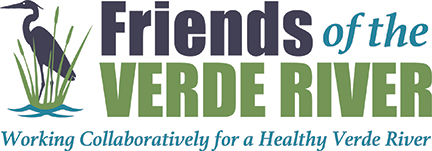Tribal Seed Collection Crew
The Co-op partnered with the Institute for Applied Ecology and The BLM Colorado Plateau Native Plant Program (CPNPP) to support a 12-week tribal youth seed collection crew. The three-person crew was trained in Seeds of Success protocols to collect wild native seeds from public lands to increase our accessions of seed for future production projects. Our first crew, led by Scott Massed, an experienced Arizona field botanist, was extremely successful. Our AZ Conservation Corps interns, Kelsey Jensen from Navajo and Erica Kallestewa from the Hopi Nation were passionate and engaged seed stewards. They both gained valuable job skills in plant identification, horticulture and seed collection skills. The crew made 45 individual seed collections of 15 different species and scouted 180 different populations of target species for future collections for Co-op and partner seed increase projects. This effort expanded our native seed collection program to include target species requested by USDA-Forest Service Region 3 forests (Coconino, Prescott, and Tonto), BLM, and CPNPP). We increased the number of populations sampled per seed zone to improve genetic diversity of accessions destined for future seed increase projects. They also planted 18,600 seedlings in greenhouses for our upcoming field production projects.
Native Seed Increase
We have contracted with Tonto National Forest for multiple acre field-scale seed increase pilots. We have created a priority species list and have completed wild harvesting of five priority species for planting in 2017. We were awarded funding from the Institute for Applied Ecology and USFS R3 to support production of one-acre of native seed increase for Tonto National Forest. This funding will provide support for three years of production with two private producers, Whipstone Farm and the Yavapai-Apache Nation to grow five species: three grasses (Blue Gramma, Cane Bluestem, Sand Dropseed) and two pollinator plants (Horsetail Milkweed and Tansy Aster) from wild seed we collected in fall 2016. Planting for these projects is targeted for mid-September 2017.
Rezzonico Park Native Grass Demonstration
The Co-op, with support from the Nature Conservancy (TNC), will be planting a native grass demonstration field to increase public interest in landscaping with drought tolerant native plants to increase water conservation efforts. We are partnering with the Town of Camp Verde at Rezzonico Park (across from the public library) to grow a half-acre of wild-collected native grasses to showcase the production of drought tolerant native grasses for the public. The proposed half-acre grass field will be comprised of wild-collected native grasses from the area, including Blue Gramma, Cane Bluestem, Sand Dropseed, Giant Sacaton, and Bull Grass. These grasses will increase wildlife habitat, including food for birds, nesting habitat for pollinators, reduce bare ground and beautify Rezzonico Park, which is currently unvegetated and weedy, naturally without chemicals.
This project will help the Co-op and TNC educate the public about water conservation, and the use of native plants for landscaping. This site is located near several small farms, which will allow us to contract with local farmers for cultivation and harvesting, while introducing them to an alternative crop. Verde Volunteer Network volunteers will assist with planting, weeding and irrigating. The seed produced will be used for local restoration projects, shared with community volunteers and herbicide free native grass hay will be made available to local gardeners. The long-term goal is to inspire municipalities and private landowners to incorporate native grasses in future landscaping projects.
